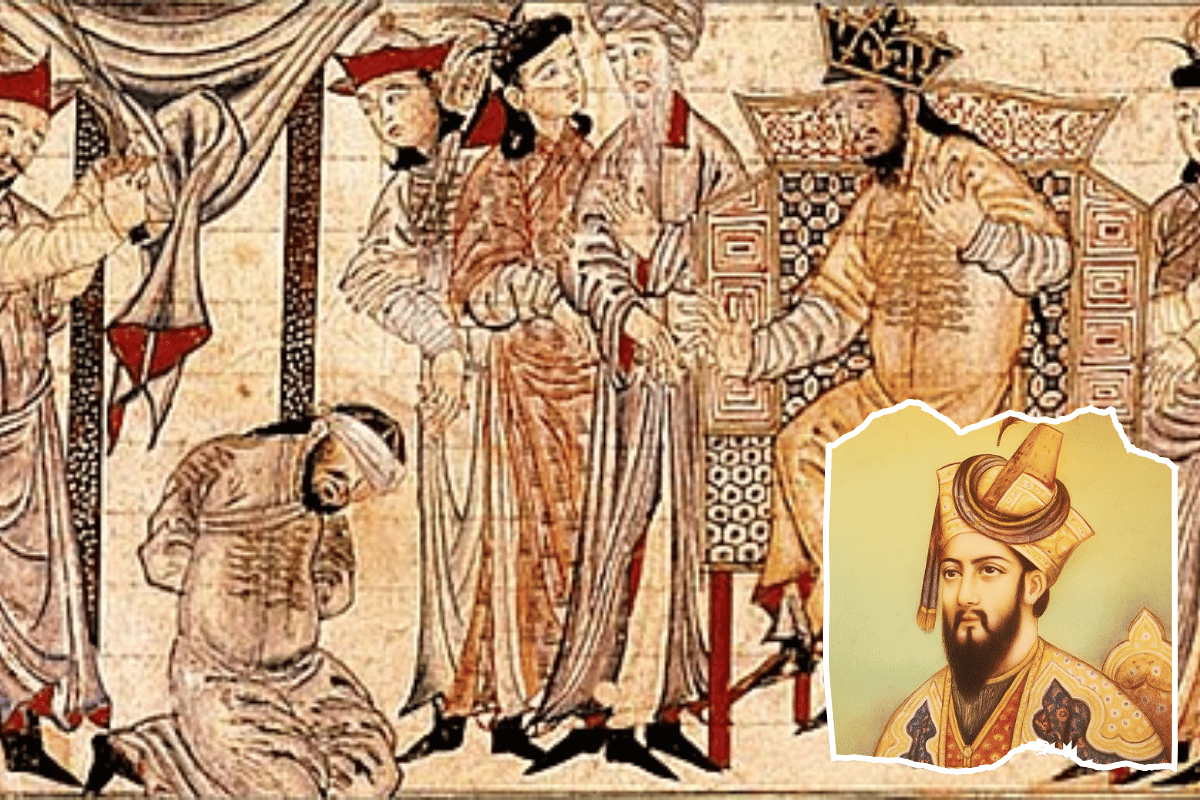
Rashmi Samant’s election as the first Indian woman President of the Oxford University Student Union (SU) in February 2021 was celebrated as a monumental achievement for the Indian community, particularly for Hindus across the globe.

As a young woman of Indian heritage, her rise to this prestigious position was seen as a beacon of progress and empowerment. However, her tenure would be cut short in a manner that shocked not only her supporters but also many in the Hindu community, leading to questions about the nature of the criticisms she faced and the deep-seated challenges faced by individuals from minority backgrounds in today’s political climate.
The unravelling of a historic achievement
From the perspective of many in the Hindu community, Samant’s election was a symbol of pride. As a bright, capable, and ambitious young woman, she represented the new wave of leadership emerging from Indian-origin students in prestigious Western universities. However, the initial joy and pride were quickly overshadowed by a series of controversies that stemmed from her past social media posts. Comments from her earlier years resurfaced, and many of these were deemed controversial by certain sections of the student body and the wider public. Some of these remarks, which ranged from her stance on LGBTQ+ issues to political commentary, were viewed by some as insensitive, even offensive.
For the Hindu community, the ensuing uproar felt like a betrayal of the values they held dear—values of respect, unity, and understanding. To many Hindus, Samant was simply a young person with evolving views, yet she found herself subjected to an overwhelming backlash. Rather than focusing on her accomplishments or her ability to lead, attention was diverted to her past mistakes, amplifying the criticisms rather than seeking an opportunity for growth or understanding.
The role of social media and identity politics
What made this situation even more complex was the role that identity politics played in the narrative. Rashmi Samant was not just a student leader; she was a Hindu woman in a highly charged political environment. In the months following the controversy, many in the Hindu community began to perceive the attacks against her as not just about her social media comments but as a direct challenge to her identity as a Hindu woman. Her Hindu faith was weaponised against her, and some reports even claimed that an academic figure had personally insulted her Hindu identity in a manner that many saw as discriminatory.
From the Hindu community’s point of view, Samant’s resignation was not a simple case of taking responsibility for past errors. It was seen as the result of a concerted effort to silence her voice and punish her for simply being herself—a young woman of Hindu background navigating a complex and often hostile political environment. This, to many, felt like a form of “cyber lynching”—a concerted campaign of online harassment aimed at forcing her out of a position of influence, fueled by both genuine grievances and an undercurrent of cultural intolerance.
A Hindu perspective on her resignation
For Hindus who rallied behind Samant, her resignation represented a much larger issue: the challenge of being a minority in a predominantly Western, often secular, environment. The comments and actions directed at her, particularly in relation to her identity, raised deeper concerns about the broader societal attitudes toward Hinduism and its practitioners. Many Hindus felt that Samant was unfairly singled out due to her cultural and religious background, particularly as the criticisms did not focus on her potential as a student leader but on her perceived “missteps” regarding sensitive social issues.
Her resignation, although framed as a necessary action due to her past comments, was viewed by many as a stark reminder of the precarious position of Hindus in Western student politics, where issues of identity and faith often become battlegrounds for wider political and ideological struggles. The Hindu community, while not condoning offensive remarks or actions, also felt that the punishment meted out to Samant was disproportionate and that it ultimately silenced a promising leader who could have contributed significantly to both the university and the broader public discourse on diversity and inclusion.
“A Hindu in Oxford” – A call for understanding and respect
In January 2025, Rashmi Samant published A Hindu in Oxford, a memoir in which she reflected on her experiences of harassment, public humiliation, and the injustice she faced following her resignation. From a Hindu perspective, the book offered a valuable insight into the emotional and psychological toll that her experience took on her. It underscored the pain of being constantly judged for her identity, both as a woman and as a Hindu, in a setting where such aspects of her being were weaponised against her.
Samant’s memoir highlights her anguish over the way her faith was used to attack her and how she was made to feel that being a Hindu in a public and politically charged environment was inherently problematic. The book paints a picture of a young woman trying to navigate a highly polarised world, where her faith and identity are placed under constant scrutiny. This resonated deeply with many Hindus who had experienced similar challenges in their own lives, where their faith and cultural background were seen as burdens rather than sources of strength.
Reflections on the larger issue
Rashmi Samant’s case, from a Hindu perspective, is not just about an individual’s fall from grace but a larger commentary on how minorities, particularly Hindus, are treated in the public and political spheres. Her case sheds light on the challenges faced by young people who represent a particular cultural and religious community, especially when their actions or views deviate from the expectations of the dominant cultural narratives.
For Hindus, Samant’s resignation and the subsequent controversy revealed a broader issue: the tension between maintaining one’s cultural identity and the demands of fitting into a largely secular, multicultural society. Her experience serves as a cautionary tale about the complexities of identity in the modern world, particularly when navigating spaces that are often not equipped to understand or accommodate diverse perspectives on religion and culture.
Ultimately, from the Hindu community’s standpoint, Rashmi Samant’s journey was emblematic of the difficulties faced by many who, while striving for success and equality, are constantly reminded that their identity—as a Hindu or as a person of Indian origin—can be weaponised against them in the public sphere. The hope is that, as society becomes more diverse, such individuals will be allowed the space to learn, grow, and contribute without being defined solely by their past mistakes or their cultural background.








